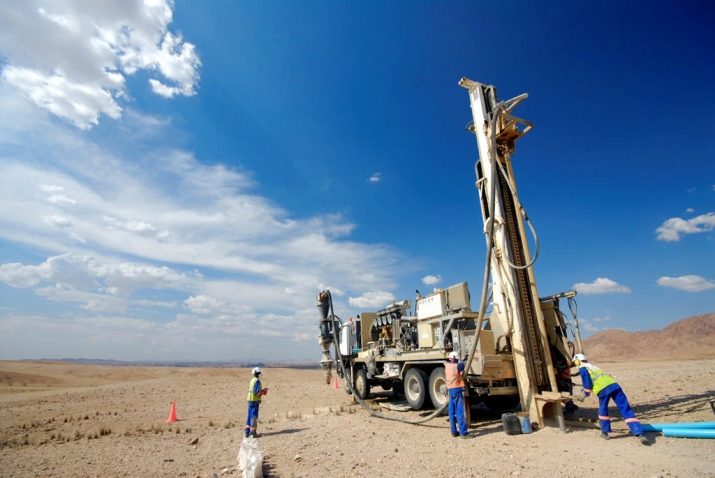All about the profession of oilman

Oil can rightly be called the most valuable minerals of our time - most cars still drive the fuel produced from it, the same raw material is used to make plastic, which, as we know, is already too much on the planet, but it is extremely difficult to do without it. ... Recently, many countries have declared the goal of reducing the use of gasoline cars and reducing the production of plastic, especially since, according to the forecasts of geologists, mankind will only have enough oil for the next few decades. Nevertheless, the extraction of this resource in the next thirty years will bring fabulous profits to oil-producing countries, and the person working in this area will not be left behind either. There are enough oil reserves for a human life, which means that the profession of an oilman should be seriously considered as a way to ensure a comfortable existence.
Peculiarities
Most people choose a job based on the level of salaries, but you need to understand once and for all: if the profession is easy, they won't pay much there. Looking ahead, let's say that domestic oil workers earn several times more than the average Russian, but money does not fall on these people from the sky. - it's just that their profession is not up to everyone, and the "sugar" in it is only a salary, which makes you endure all the hardships and hardships.
At the same time, it is wrong to say that an oil worker is already a profession. Actually this is the name for absolutely all people who work in the oil industry, but it is not difficult to assume that positions and responsibilities here are completely different. These are geologists who search for and evaluate oil deposits, and chemists who assess the quality of raw materials and purify them, and engineers with technicians and programmers who are responsible for the correct operation of equipment. The real oilmen in every sense of the word are drillers, who, due to the configuration of their own skills, cannot do anything else. Even a driver can be considered an oil worker if he works at the field all the time.
In short, an oilman in a broad sense is any person without whom oil production will stall.
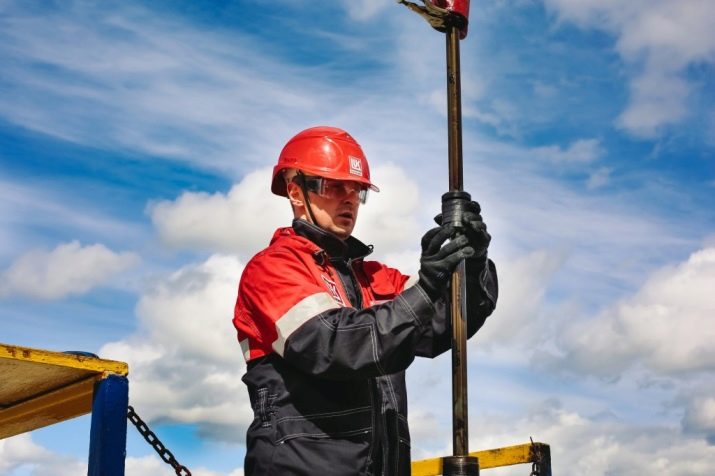
At first glance, the same driver should not be moved to the category of oil workers, because he does nothing that would not have to be done at any other enterprise. But in fact, a high salary in any oil field is due not only to high profitability, but also to the specifics of remoteness from civilization. In most cases, oil is produced today far from developed megalopolises, and although Tatarstan and Bashkortostan are a little out of the general trend, today in the vicinity of large cities most of the oil has already been produced. Instead, new wells are being drilled in the little-known regions of the North of our country, where there may not be a soul for hundreds of kilometers around. For the workers, of course, certain conditions are created, but work there is only possible on a rotational basis, because there is simply nowhere to take a family, and it will not work out to the city after the shift - there is no city.
On the other hand, professional activity is often carried out in frosts that are bitter, even by Russian standards, which is why any employee in the oil sector gets so much.

Responsibilities
As we already understood from what was said above, oilmen are a very extensible and superficial description of a group of people who are united not so much by a profession as by an industry. For this reason, it is impossible to talk about any general obligations for everyone - everyone does what is prescribed by their specific profession and the terms of the employment contract.
By the way, The specifics of work in the oil industry is such that many wells are constantly producing oil, and it is simply impossible to suspend production. In such conditions, the absence of at least one employee from the workplace, even if he has a reason that is considered respectful in all other situations, is unacceptable. This statement is especially acute for those workers whose duties include urgent elimination of any problems and malfunctions - even if there is no round-the-clock duty of professionals at the facility, they must be ready at any time to drop everything and arrive at the scene of the accident as soon as possible.

In view of this, when sent to the field to work on a rotational basis, each employee, regardless of profession, signs a contract with a detailed description of all the principles of his future work activity. All responsibilities are clearly spelled out there, among which the readiness to work without additional days off and sick leave is often mentioned - in the conditions of the Far North, the employer will not physically be able to quickly hire and bring a replacement for a disabled employee. Any tardiness or absence from the workplace is severely punished because it jeopardizes the functioning of the entire field.
Considering all of the above, the duties of an oil worker can be briefly described as follows: direct professional duties plus iron discipline and a constant willingness to work overtime.
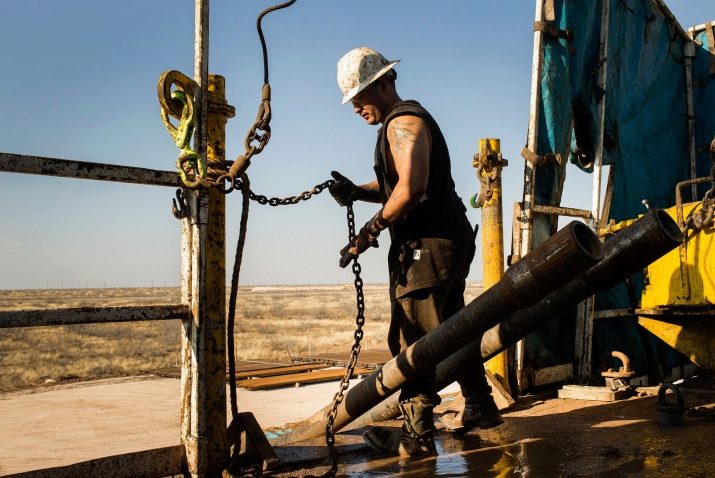
Personal qualities
Having familiarized yourself with all of the above, the reader probably already understood that in the oil industry, romance is very conditional, but not everyone can withstand the working conditions. The candidate must be fluent in all the intricacies of his specialty, but at least for working on a rotational basis, this will not be enough.
The key requirement for any applicant is communication skills and the ability to find a common language with the interlocutor. There will be no relatives, no friends, no entertainment - all personal contacts will only take place with other oil workers. The entire team must work harmoniously, as one team, therefore any conflict situations are extremely undesirable - they, again, jeopardize the timeliness and accuracy of all operations. Finding a common language with everyone around, you will not become a participant in a fight, you will not substitute anyone and you will not be substituted yourself.
Again, staff turnover is very high because everyone's shifts end at different times - therefore, you have to make new friends all the time.
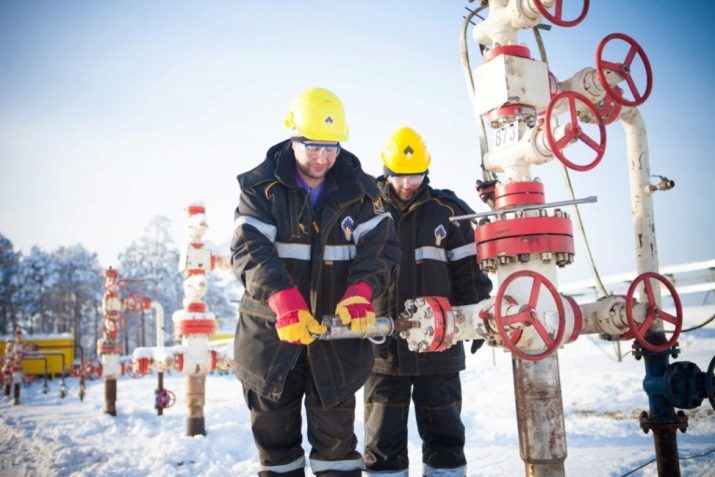
Another important criterion is stress resistance. An oil watch differs from being in a strict regime colony with a slightly increased comfort, voluntariness of stay, excellent pay and the fact that you are not beaten, but in all other respects parallels will inevitably arise. You will have to live in a harsh climate, constantly working and practically having no personal time - even if it was, there is practically nothing to spend it on. You can forget about entertainment, drunkenness, of course, is also a fight, and all this is in a harsh climate. It is usually impossible to quit before the end of the contract, or it will lead to huge losses in salary for the one who could not stand it - which means that you need to have one hundred percent confidence that you can stand it.
We have already spoken about discipline and responsibility in general. Any looseness and unwillingness to strictly adhere to the schedule is a potential huge loss for the employer, therefore, a person who is inclined to be late, contradict his superiors or shirk from work is strongly discouraged here. You should not rely on the fact that the main thing is just to get here: the contracts are made by intelligent people, and there are sanctions for tricks with behavior that will once and for all discourage the desire to fool around or go to the North.
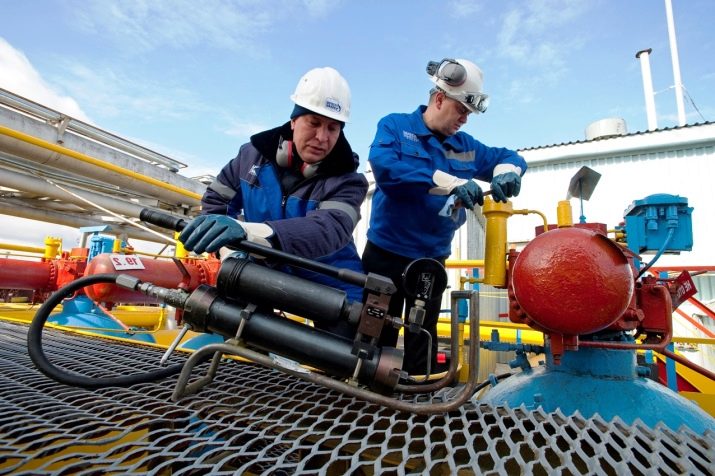
Activity and endurance are two more essential qualities for an oil worker, which simply cannot be done without. If you are accustomed to an eight-hour day in the office, where you can beat your thumbs half of the time while the boss is busy with his own business, then it will be incredibly difficult for you in an oil field. Employers pay fabulous salaries not for staying here, but for permanent jobs. They are not interested in any "workers' rights" in terms of long rest - you are in such conditions when there is still nothing to do except sleep and work. The industry is so profitable for the state and the hard workers employed in it that all the work falls on the shoulders of a relatively small number of people, for whom it is not necessary to upset the whole city with all the necessary infrastructure. Recruiters who are recruiting people for such a job understand that not every person can withstand a wild regime, so they are looking for only the most resilient ones.
Attentiveness in everything, including the extremely precise execution of the assigned work, is another aspect that is mandatory for potential oil workers. LAny oversight that led to the shutdown of oil production or pumping is not just a loss of raw materials and huge lossesbut also environmental pollution or even the likelihood of creating a dangerous situation for colleagues.
Oil workers are not allowed to sleep on the move - you must constantly maintain maximum concentration of attention, not switch to your own wave, but always remember where you are and why.
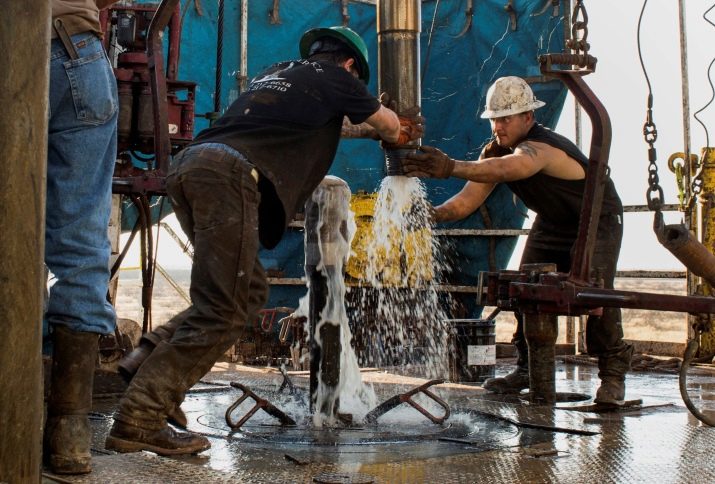
Initiative and the ability to think outside the box will come in handy to a greater extent those who are involved in the elimination of emergency situations on duty, but you need to understand that since you are going to the North, an emergency situation can arise at any time and with anything. The willingness to productively solve problems without a command from above will not be left unattended by the bosses, while unpreparedness and confusion in a situation where it was necessary to act urgently can be regarded as criminal negligence that has caused astronomical losses.
It is also worth mentioning the features that are not quite personal qualities, but the oilman will also come in handy.... Firstly, good health will definitely not hurt - without it, you simply cannot withstand the conditions of hard work and the harsh northern climate. Secondly, a preliminary understanding of the entire oil production process or the willingness to rapidly learn and delve into all the processes are useful qualities that will allow you to climb the career ladder and significantly increase your own income. Thirdly, knowledge of foreign languages for an experienced oilman will be a huge plus simply because oil is produced not only in Russia, but also abroad, where, as you know, the work of a qualified professional is always valued higher than ours.
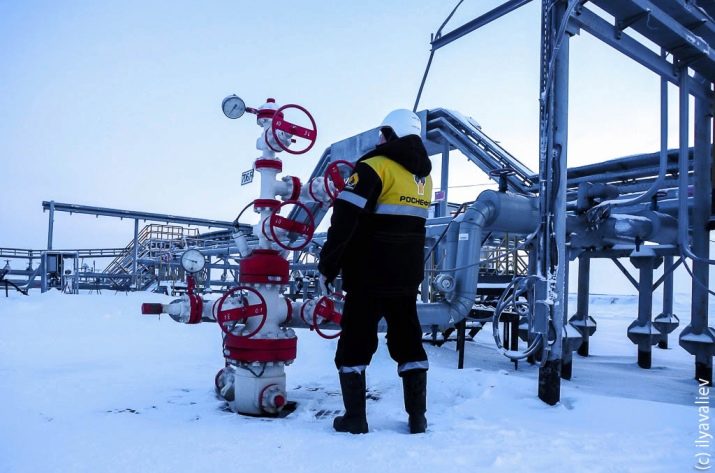
Education
The question of what kind of education you need to get to become an oil worker strongly depends on how you see your profession in this industry. For example, to work there as a driver, it is not necessary to study at the university, but you can even leave school after the 9th grade in due time - basic vocational training takes place for you in the course of work in previous positions, especially if you have already been a driver in the North.
Whether it is a narrower specialization, which is most directly related to oil production. Judging by the polls of real oil workers, it is impossible to get to the field without education - there simply are no such professions where only unskilled workers would be needed.
Secondary education or vocational school will not be enough: you need at least secondary vocational education, and even better - higher, moreover, industry-specific.
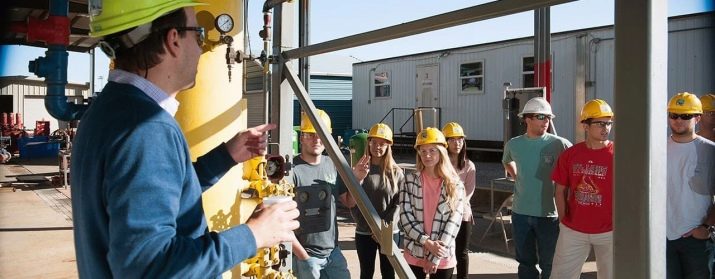
Predictably, the majority of educational institutions that train future oil workers are located either in the largest megacities of our country, or in those regions where oil production is well developed and there is a direct demand for graduates. The most prestigious university in this area throughout Russia is the Russian State University of Oil and Gas, a branch of which is open in Orenburg. With his "crust" you will hardly be a simple hard worker, but you will be able to apply for more interesting vacancies and count on successful employment. Ufa State Petroleum Technological University, if it is inferior in prestige, is not much - within its walls you can become both a researcher dealing with various industry issues and a qualified field worker.
The choice of universities does not end there - you should pay attention to Tyumen Industrial and Tomsk Polytechnic Universities, Northern (Arctic) Federal and Ugra State. In Tomsk, there is a joint program with the Scottish University, which allows you to get an international master's degree. To become a manager in the oil industry, it is worth entering the Institute of Oil and Gas Business.
Many potential applicants are also interested in what subjects need to be taken to enroll in an oil worker.
Too much depends on the specific specialty, and on the chosen educational institution, and even on the year of admission, so you need to clarify this question, having already answered all the other questions for yourself.
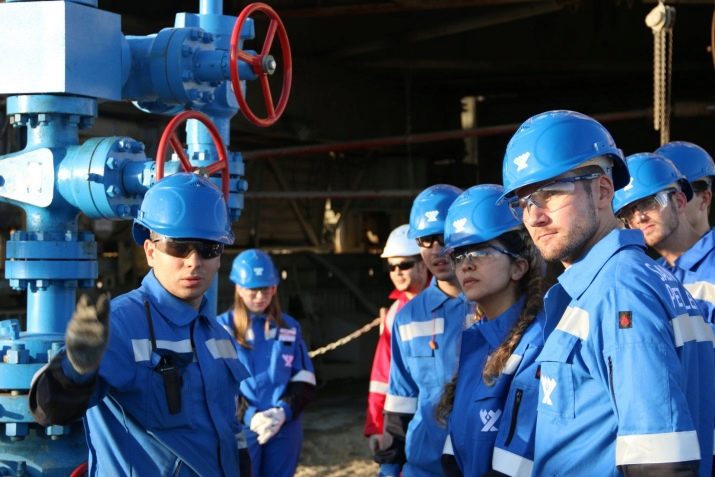
Where to work?
It is possible to work as an oilman in the broadest sense of the word directly at the field, and at the refinery, and in the management office of the company. The first two options are available to applicants mainly in regions of intensive oil production, while offices of different levels can be located both in industrial centers near oil fields, and in Moscow or other Russian million-plus cities. If there are no oil refineries in your region, and there are no offices either, or they won't be hired there, getting to the North on watch is not so difficult. - oil producing companies work with recruiters in all regions and actively advertise their vacancies.

The salary
An oil worker's earnings strongly depend on what position he holds, what is his experience, on what conditions he signed the contract. Even having a diploma from a prestigious specialized university and having a specific oil specialty, at first you may be faced with the fact that they offer payment at the level of about 50 thousand rubles a month. For some, this is already not bad, but in fact, even in Russia, oil workers earn more.
Much also depends on the specifics of the field and work on it. So, at the start, some oil workers "in the field" receive 3.5 thousand rubles a day, and the maximum you can grow up to 12 thousand rubles a day - this despite the fact that there are no days off on watch.
Another thing is that the contract often provides for regular holidays to the "mainland" lasting two to three weeks - during this period no salary or vacation pay is paid, but it is easy to assume that there is still enough money.
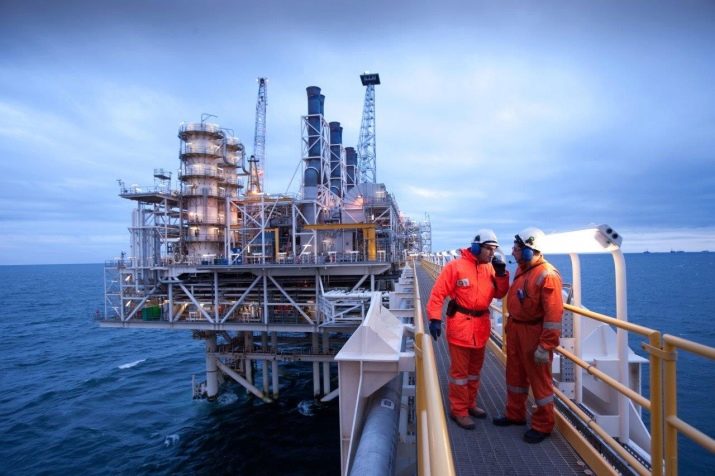
In many places, for field work in a northern climate, the so-called "polar" is also provided. It is calculated after 180 days have been worked directly "in the field" in the North, and is a 10% addition to the salary. Earning over 100 thousand rubles a month is quite realistic.
A separate topic is the office work of an oil worker. Getting to such a position is more difficult, but then you are in the city, among civilization, and they pay 100-120 thousand rubles from the start.
As well as “in the fields”, the possibility of career growth and salary increases exists, but the principles here will be different, depending on the characteristics of the company.
